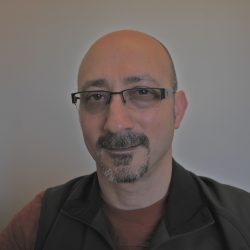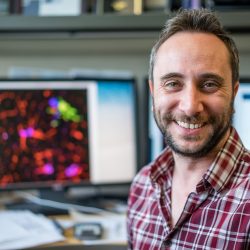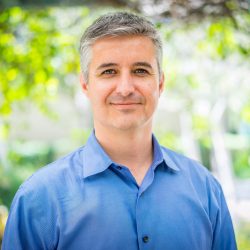Bio 93: DNA to Organisms is taught in Fall Quarter by Professors Jorge Busciglio, Kim Green, and Marcelo Wood.

Dr. Jorge Busciglio

Dr. Kim Green

Dr. Marcelo Wood
Restriction: BIO SCI 93 may not be taken for credit if taken after BIO SCI 97 or BIO SCI 98.
Course Objective:
Cell biology, biochemistry, genetics, and the biology of organ systems. Covers concepts of building blocks (nucleotides, amino acids, and cells) and of information flow (DNA to proteins, receptors to nuclei, the blood to distant organs, and DNA to offspring).
Course Goals:
After successful completion of this course, you should be able to:
1. Discuss basic concepts of cellular and molecular biology using the correct terminology
2. Explain how cellular components work together to support life
3. Illustrate the molecular mechanisms of DNA, RNA, and protein synthesis
4. Use the scientific method to develop and test a hypothesis, design experiments, make predictions, and interpret scientific data
5. Work in teams to critically think about and analyze scientific issues
Sample Syllabus:
| # | Topic |
| 1 |
Introduction Themes in Biology |
| 2 |
2.1 Building the Cell I
|
| 3 |
2.2 Building the Cell II
|
| 4 |
2.3 Building the Cell III
|
| 5 |
1.1 Tour of the Cell I
|
| 6 |
1.2 Tour of the Cell II
|
| 7 |
1.3 Tour of the Cell III
|
| 8 |
1.4 Tour of the Cell IV
|
| 9 |
1.5 Tour of the Cell V
|
| 10 | MIDTERM I |
| 11 |
3.1 Powering the Cell I
|
| 12 |
3.2 Powering the Cell II
|
| 13 |
3.3 Powering the Cell III
|
| 14 |
6.1 Molecular Biology I
|
| 15 |
6.2 Molecular Biology II
|
| 16 |
6.4 Molecular Biology III
|
| 17 |
6.4 Molecular Biology IV
|
| 18 |
4.1 Dividing the Cell I
|
| 19 |
4.1 Dividing the Cell I
|
| 20 | Veterans Day – No Class |
| 21 |
4.3 Dividing the Cell III
|
| 22 | MIDTERM II |
| 23 |
5.1 Genes and Chromosomes I
|
| 24 |
5.2 Genes and Chromosomes II
|
| 25 |
5.3 Genes and Chromosomes III
|
| 26 |
6.1 Molecular Biology V
|
| 27 | Thanksgiving Break – No Class |
| 28 |
8.1 Nervous System I
|
| 29 |
8.2 Nervous System II
|
| 30 | 9.1 Emerging concepts in Biology |
| 31 | FINAL |

